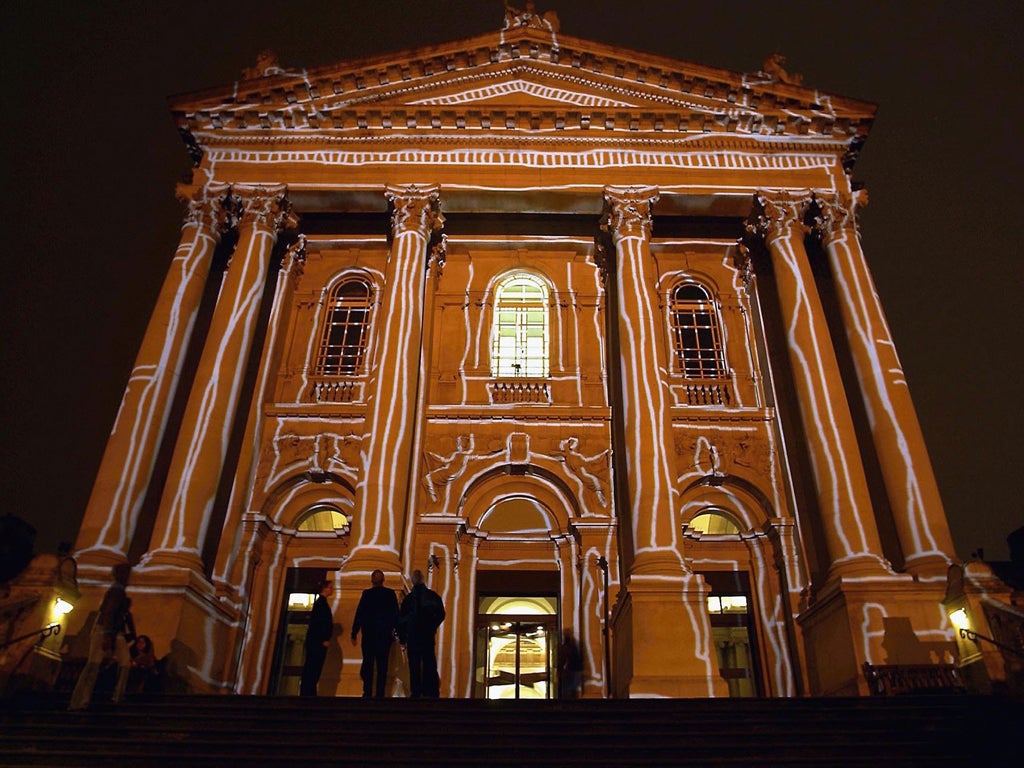Tate Britain: If you patronise Lowry, you patronise generations of urban Britons
The affection for Lowry has less to do with style, and much more to do with the familiarity of his subject matter to very many Britons of a certain age


The press release that heralded the country’s first major Lowry exhibition at Tate Britain was a classic.
It positively dripped with (oh so restrained) condescension. The word “reassess” occurred more than necessary and the artist himself was not only defined by his day job (rent-collector), but described as “much-loved” – ie popular, downmarket, not one for the cognoscenti. It says a great deal, I think, that the exhibition, which opened a couple of weeks ago to some equally sniffy reviews (including mention of clumsy brushstrokes that you can now see close-up) is curated by two American art historians. A prophet not without honour, save in his own country.
Well, having gone to the exhibition earlier this week, I can confirm the experts’ worst fears. Even on a Monday there were a great many people, including quite a few I would guess who had come up to London specially. I can also confirm that they were loving it. “If he were around now, he’d be painting Canary Wharf,” someone commented. A striking number delighted in the remembered cityscapes of their childhood. Someone wrote in the visitors’ book that he’d gone to Daisy Nook fair as a boy.
By including works by artists who might have influenced Lowry, including his teacher, the curators have tried to add an instructive spin. But it was the Lowrys people had come to see, and there was a feast of them. Some, it must be said, cruder in their brushwork than others, but many delicate and intense. I happen to like primitive and naïve painting, but I grant it’s not for all.
Watching the gallery-goers, it seemed to me, though, that the affection for Lowry has less to do with style – except in so far as it is so accessible – and much more to do with the familiarity of his subject matter to very many Britons of a certain age. We recognise the Englishness of Constable and Turner, while consigning them to a romantic past. Lowry, too, is now a painter of the past, but a real past that speaks of what, deep down, we know.
Often, Britons seem shy about signing visitors’ books. Not here. I flicked through pages crammed with ecstatic comments. Someone said the exhibition was so much more satisfactory than that in the actual Lowry gallery in Salford. Someone said it was a pity “we had to wait so long” for the first national Lowry exhibition. And someone else seemed to sum up it all up, writing “lest we forget”.
Bye, David, don’t forget Iraq
It’s uncharitable to say this, I know, just as David Miliband leaves the country to start a new life in New York, but I can’t help finding him deeply irritating. Rarely more so than in his other valedictory appearance – not his TV love-in with Andrew Marr, but the lecture he gave as this year’s Ditchley Foundation speaker.
This was, for the most part, a disquisition on military intervention, and he managed at once to assess the “overall reckoning” for the Afghanistan and Iraq interventions as “strongly negative” and to present himself as a mere bystander, whose only role was “seeking to bring those conflicts to a close”. I suppose you could say that.
But was the pre-Foreign Secretary Miliband not a close adviser to Tony Blair at the heart of New Labour? Did he not troop into the lobby in support of the Iraq invasion? And do those two facts not require acknowledgement and just maybe some humility?
m.dejevsky@independent.co.uk
Join our commenting forum
Join thought-provoking conversations, follow other Independent readers and see their replies
Comments